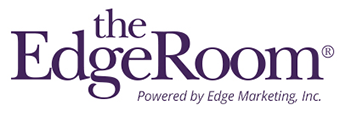More than 80% of lawyers now view technology adoption as essential for the future of their firm and three quarters view the future adoption of AI specifically as key. Yet in increasingly uncertain economic times, the return on investment or ‘ROI’ of any outlay an organisation makes is going to be highly scrutinised. Crucially, lawyers need technologies that they can trust to get the results they need, not only to maintain business stability but also to take their work to the next level.
Take on more projects with Luminance
The legal and business marketplace is becoming increasingly competitive: law firms and in-house legal departments are tightening their belts to maintain profitability while clients are demanding increased expertise, efficiency and transparency from their lawyers.
Luminance brings machine learning to the legal profession, uniquely combining supervised and unsupervised machine learning to read and form an understanding of data, instantly surfacing crucial information such as clauses and datapoints. By reducing the amount of time and legal professionals needed to find the key data within documents, lawyers can choose to spend more time on higher-value analysis work, or can instead redirect resource to undertake additional projects.
For example, Luminance customer, Burness Paull, is using the Luminance ‘Discovery’ platform to conduct DSARs (Data Subject Access Requests) arising from data protection regulations like the GDPR. Without Luminance, the resource needed to fully comply with each DSAR means that the service is often not economically viable for lawyers to offer their clients or, in the case of in-house teams, without the support of external counsel. Yet with the assistance of Luminance’s technology, firms can dramatically reduce the time spend on each review. For instance, the first time that Burness Paull used Luminance to conduct a DSAR of 6,000 documents they saw 50% time savings, thus ensuring profitability when offering this service to their clients.
Meeting the spectrum of client demands
Not only can Luminance help lawyers to attract new business, but it can help provide an enhanced service to existing clients, too. By using flexible machine learning technology, Luminance can be used across a wide range of projects, enabling them to proactively respond to new challenges and in turn, expand their client service offering. For example, ‘Big Four’ accounting firm, Ernst & Young (EY) Law Belgium are using Luminance’s flexible technology to help their clients with Brexit compliance and now LIBOR transition projects. As Stéphanie De Smet, a Corporate Lawyer at EY Law Belgium, put it, “With many of our clients concerned about the impact and cost of a LIBOR review, Luminance’s powerful machine learning is fundamental to our legal practice.”
Flexible pricing for lawyer and client
Luminance has a range of commercial models from pay-as-you-go model to subscriptions options for larger data usage. This ensures that the platform can benefit firms and organisations of every size, from boutique law firms right through to the Big Four. Further, Luminance requires little-to-no set-up time before use, with most customers up and running within a matter of hours. Indeed, with Luminance’s intuitive and easy-to-use system, no bespoke user training is required and legal teams can see real results from day one.
When it comes to recouping their initial outlay on technology spend, some law firms choose to pass on the cost of their investment directly to their clients as a technology fee. Other firms choose to pass on some of the cost savings to their clients, offering competitive pricing in order to win additional business: one ‘Global Top 100’ law firm recently used Luminance to conduct a review of employment contracts and were able to save their client $800,000, representing an impressive 90% cost saving. And other firms might choose to maintain the same fees, keeping lawyers working the same hours on the project but with more time spent on analysis rather than sifting through the data. The range of ways firms might maximise the value of their technological investment is covered in our white paper.
Try Luminance for free today
Legal professionals are at a pivotal point- with advanced technology available and more accessible than ever, lawyers have tools at their fingertips that will allow them to do more with less resources, keep up with the accelerating pace of their business and use time more effectively. Luminance offers a two-week free pilot today so users can the the transformative potential of Luminance’s technology at work in their organisation.
For more information, please read the Luminance Business Case White Paper or contact info@luminance.com.



